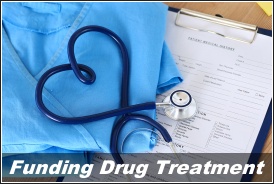 President Obama recently attended the National Prescription Drug Abuse and Heroin Summit in Atlanta, Georgia. Professionals and concerned citizens used the forum to explore ways to address America’s rising opioid addiction problem.
President Obama recently attended the National Prescription Drug Abuse and Heroin Summit in Atlanta, Georgia. Professionals and concerned citizens used the forum to explore ways to address America’s rising opioid addiction problem.
The President agreed that increased funding is needed to raise access to drug treatment in an effort to simply avoid incarcerating those addicted to heroin and other potentially deadly opioids.
The NBC article referenced here states that over 28,000 people died last year from opioid overdose in the United States. This number has quadrupled since 1999. Many of the overdoses occur from various opioids laced with a powerful prescription pain killer called fentanyl.
Methadone and buprenorphone (the active ingredient in suboxone) are the leading medications used in medication-assisted treatment approaches. Naloxone is another important medication which has been used to reverse opioid overdose. It has saved thousands of lives and is being widely adopted by first responders and police departments across the country due to its proven effectiveness.
President Obama expressed that the U.S. will move toward improved drug treatment access for opioid addicted individuals and that the issue of addiction will be dealt with more as a public health issue as opposed to strictly a criminal act. Included in the proposed legislation is doubling the patient limit such that doctors can treat up to 200 people with buprenorphine (suboxone). The current patient limit is 100.
The Department of Health and Human Services is reported to have committed another $94 million to community health centers to boost their provision of medication-assisted treatment in poor and isolated communities. Many rural areas of the U.S. have very limited availability of opioid addiction services.

 Follow
Follow

 PBS’
PBS’  An article in the
An article in the  A study by the government agency SAMHSA indicated there were approximately 254,000 patients receiving methadone for opioid addiction in 2006. In 2015, it is most likely that number is much higher given the prevalence of opioid addiction and the continued expansion of outpatient opioid treatment services in the United States. Today, there are considerably more methadone clinics and suboxone-approved physicians than there were a decade ago.
A study by the government agency SAMHSA indicated there were approximately 254,000 patients receiving methadone for opioid addiction in 2006. In 2015, it is most likely that number is much higher given the prevalence of opioid addiction and the continued expansion of outpatient opioid treatment services in the United States. Today, there are considerably more methadone clinics and suboxone-approved physicians than there were a decade ago. Acadia is a large U.S. based company who provide a broad range of behavioral healthcare services that target mental health and substance abuse problems in children, teenagers, and adults.
Acadia is a large U.S. based company who provide a broad range of behavioral healthcare services that target mental health and substance abuse problems in children, teenagers, and adults.


